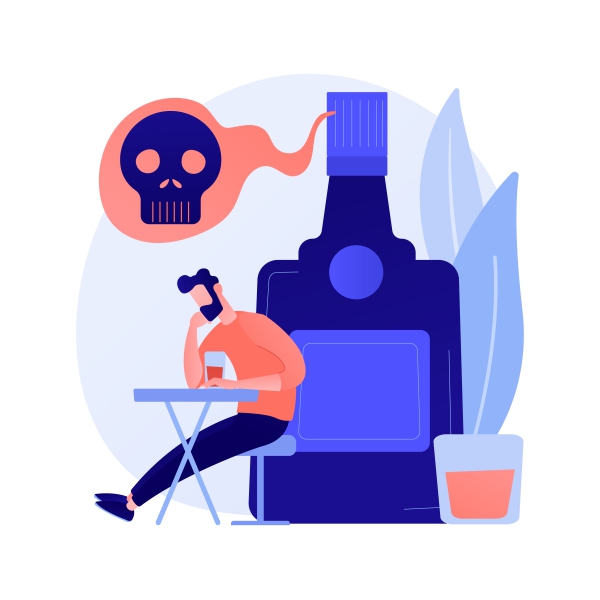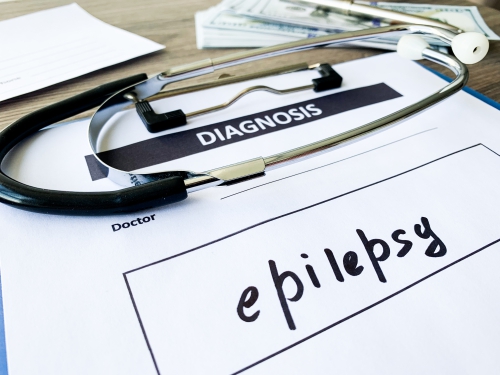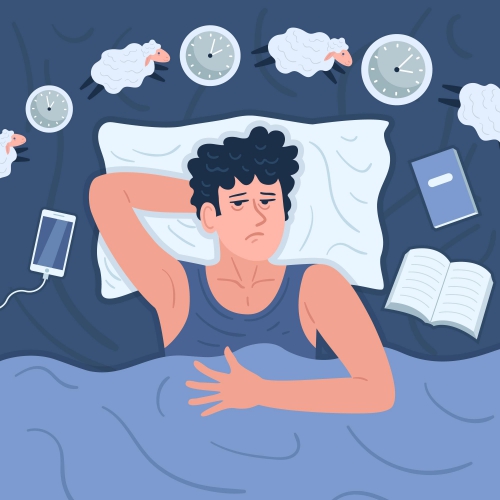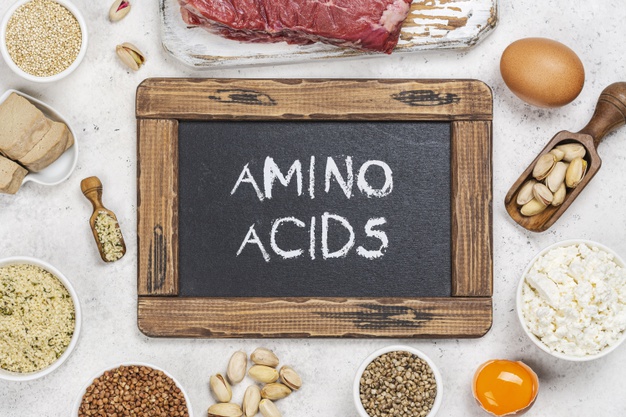What is Alcohol use disorder?
Alcohol use disorder also known as alcoholism, alcohol abuse or alcohol dependence, occurs when you drink so much alcohol that your body is no longer able to function properly without it. In this condition, you have problems controlling your drinking and your mind is constantly preoccupied with alcohol. Your body needs alcohol so much that you continue drinking despite all the problems that arises from your drinking habits. It is also characterised by the need to drink more to experience the same effect each time. You also end up having withdrawal symptoms whenever you stop drinking alcohol.
This disorder makes you prone to many other diseases as drinking alcohol excessively is unhealthy. Binge drinking also forms part of alcohol use disorder. This disorder greatly impacts your daily life and impairs your social functioning. Different people will present differently. It is very important to seek medical help early to prevent the onset of potentially severe complications.
Causes of Alcohol use disorder
The specific cause of alcohol use disorder is unknown. There are theories that suggest that different people have different response when they drink alcohol. There are several factors that can contribute and interplay in the development of the disorder namely:
- Genetics
- Psychological factors
- Social factors
- Environmental factors
With time, drinking alcohol can cause disruptions in the balance of certain chemicals in your brain such as gamma-aminobutyric acid (GABA) and glutamate. GABA is the chemical responsible for impulse control. Glutamate also stimulates certain responses in your brain.

Dopamine, another essential chemical in your brain, rises significantly after consuming alcohol. This is what makes the drinking experience satisfying. With time, excessive alcohol consumption will make your body have cravings as it relies on alcohol to feel good.
Risk factors of Alcohol use disorder
There are many factors that can increase your risk for excessive drinking namely:
- Genes: there are studies which have shown that certain genes can increase your risk of ending up with an addiction to alcohol
- Your age when you had your first alcoholic drink: if you had your first drink before the age of 15 you are more prone to have alcohol use disorder later in life
- Stress: excessive stress or anxiety can lead to alcohol abuse as you will tend to seek relief and relaxation from alcohol drinking
- Depression or other mental health problems: alcohol use disorder is common among patients with depression, schizophrenia or bipolar disorder.
- Social and cultural factors: being close to people who drink too much can predispose you to alcohol use disorder. Influence from friends, family or media can also greatly contribute.
- Low self-esteem: this can push people to drinking excessive amounts of alcohol just to feel better.
Symptoms of Alcohol use disorder
The presentation of alcohol use disorder depends on its severity. Based on the number of symptoms you present with, your doctor will be able to grade how bad your disorder is. These symptoms are:

- Having strong cravings or urge feelings to drink alcohol
- Not being able to control the amount of alcohol you drink
- Having unsuccessful attempts at cutting down the amount of alcohol you drink
- Not being able to perform well at work, school or your home due to your drinking habits
- Not being able to stop drinking alcohol despite all the health problems it is causing
- Losing interest in other activities or hobbies
- Drinking alcohol during unsafe situations
- Feeling like you need to drink more alcohol to achieve the same effect you used to have. This is called developing tolerance to alcohol.
- Experiencing withdrawal symptoms whenever you do not drink such as nausea, sweating, rapid heartbeat, trouble sleeping and tremors. In severe cases, you can even get seizures.
In some cases, people can present with alcohol intoxication as a result of an excessive amount of alcohol in your bloodstream. The higher the concentration, the more severe the symptoms will appear. These symptoms include, disinhibited behaviour, unstable moods, impaired judgement, slurring of speech, impaired memory and attention and impaired coordination. In the most severe cases, the alcohol level in your bloodstream can also lead to coma or death.
Alcohol abuse can have several effects on your body, attacking your different organ systems namely:
- Liver: inflammation of the liver (hepatitis), scarring of your liver (cirrhosis)
- Digestive system: inflammation of the stomach (gastritis), stomach ulcers, inflammation of the pancreas (pancreatitis)
- Heart: high blood pressure, heart failure, irregular heart beats
- Sexual function: erectile dysfunction, changes in menstruation
- Eye: weakness and paralysis of eye muscles, vision loss
- Bone: thinning of bones and increased risk of fractures
- Brain: impaired thinking, memory loss
- Immune system: decreased immunity, increased risk of infections


Making a diagnosis
Your doctor can make the diagnosis of alcohol use disorder by taking a thorough history from you and carrying on a physical examination. Some further tests can be carried out to assess how far your disorder has affected your various organs.
- History: Your doctor will emphasize on asking you questions on your alcohol tolerance, withdrawal symptoms, attempts to cut down, time spent on alcohol consumption, and your persistence to drink alcohol. He/she will also go through the other signs and symptoms you may be having such as problems with sleep and memory among others.
- Physical examination: Your doctor will assess the extent of the physical signs and symptoms you may be presenting with such as tremors or jaundice which may be signs of the complications.
- Blood tests: There is no specific test to diagnose alcohol use disorder. However, your doctor may find the need to perform certain tests to assess the degree of organ damage that your drinking habits have caused.
- Psychological evaluation: this include questions about how you feel and what are your thoughts about your drinking patterns and habits.

Treatment of Alcohol use disorder
First and foremost, it is important for the patient to acknowledge that he/she is suffering from an alcohol use disorder. It is important to seek medical help the earlier possible. The management of the condition will depend on its severity. This can be done on either an outpatient basis or may require inpatient stay intervention.
- Detoxification programs: The first step in managing alcohol use disorder can be a detoxification program whereby your withdrawal symptoms will be managed with medications. This will be done over a few days and is usually done on an inpatient basis.
- Counselling: Qualified counsellors will help you to understand your disorder better and provide the needed support to overcome this problem. This can also be done as group therapy. Support groups such as Alcoholics anonymous also exist internationally to help people suffering from the disorder to voice out and support one another in this journey.
- Treat underlying causes and co-morbidities: Psychological or psychiatric problems predisposing an individual to alcohol use disorder should also be tackled. Low self-esteem, stress, depression or schizophrenia should be managed accordingly. Health problems caused by alcohol should also be looked for and treated to prevent further complications.
- Residential programs: These types of programs are mostly useful in severe cases of alcohol use disorder. Furthermore, being away from the temptation source will also greatly help in your way out of the disorder.
- Medications: Disulfiram is a drug that can be prescribed in alcohol use disorder. This drug work in a way that whenever it is taken followed by consumption of alcohol, a severe reaction occurs causing nausea, vomiting and headaches. Therefore, it discourages you to consume alcohol knowing that you are taking this medication. However, it will not treat your compulsions and urge to drink alcohol. Another drug named naltrexone works by blocking the good feelings your experience with alcohol. Acamprosate works by decreasing your cravings when you stop drinking.

Complications of Alcohol use disorder
Drinking too much alcohol will bring about sedative effects. You will have decreased coordination and high levels of alcohol will affect the vital centres in your brain. Your judgement capacity will also be impaired. In certain situations, alcohol disorder can lead to several problems namely:
- Road traffic accidents
- Drowning
- Problems in your relationships
- Poor work function
- Increased predisposition to commit crimes
- Illicit drug abuse
- Risky sexual behaviours
- Suicide
Prognosis of Alcohol use disorder
Getting out of alcohol use disorder takes time and is sometimes difficult. Your will power and support system will greatly impact your outcome. Many people come out of this disorder with success. Your general health and co-morbidities also play a big role in your long term outcome. If you have alcohol use disorder or if you suspect someone from having the condition, it is important to seek medical help the earlier possible to improve the prognosis.


Source:
J. Alastair, I. and Simon, M., 2016. Davidson’s Essentials of Medicine. 2nd ed. London: ELSEVIER.
Parveen, K. and Michael, C., 2017. Kumar & Clarks Clinical Medicine. 9th ed. The Netherlands: ELSEVIER.
Thompson, W., 2019. Alcoholism









